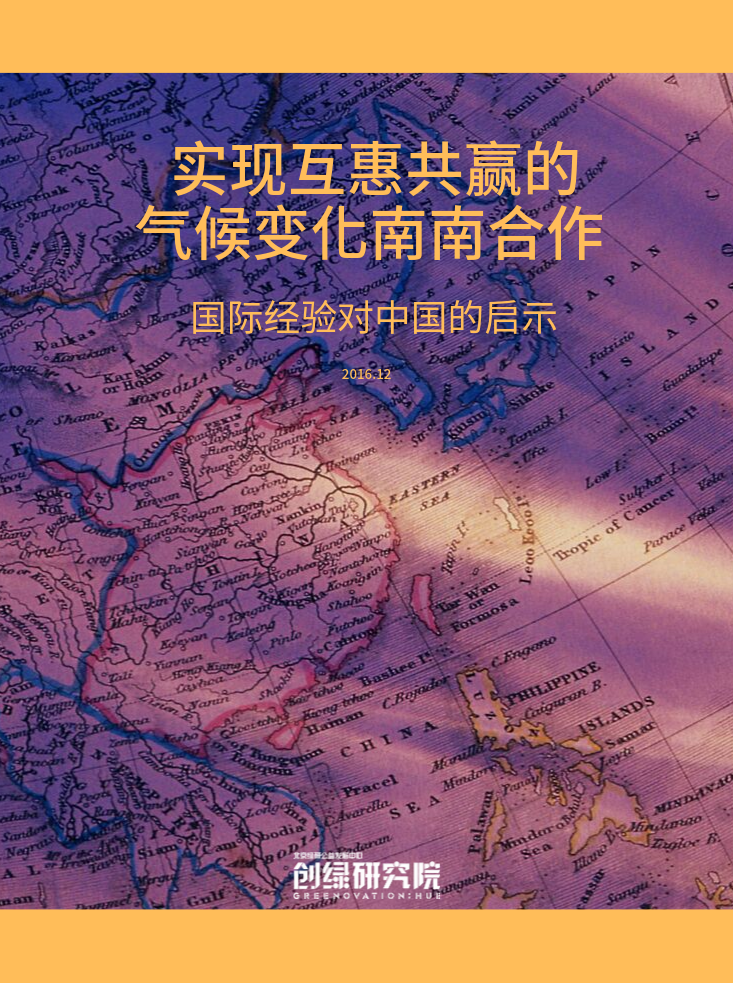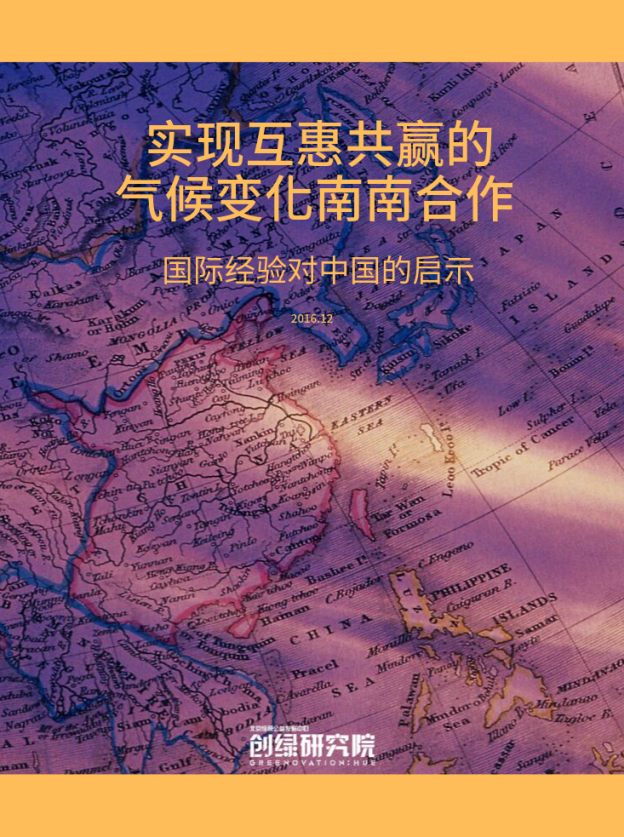
Download report: Achieving a Mutually Beneficial South-south Cooperation on Climate Change - Learning from International Experience
Climate change is one of the greatest global challenges faced by human beings. “Paris Agreement” took effect on November 4th 2016, which once again opened a door for humanity to break through the challenge. That is to say, holding the increase in the global average temperature to below 2 °C above pre-industrial levels and to pursue efforts to limit the temperature increase to 1.5 °C above pre-industrial levels. The agreement requires all nations to commit to low-carbon economy development by taking concrete actions to realize their commitments. Developing countries need not only to make all efforts on themselves but also effective international support in knowledge, technology and capital to realize a fast low-carbon development transformation while achieving economic growth under climate change risks.
This research aims at providing international experiences references and advice on how to allocate aid funds to realize the multi-benefits of the donor country so as to realize the mutual beneficial situation of both parties. The realization of the reasonable benefits of donor countries is of great importance to both donor and recipient countries. The realization of reasonable benefits can guarantee the continuity of foreign aid from donor countries and promote the effective implementation and quality improving of the aid process and results, which will ultimately promote the sustainable development of recipient countries. Thus, the realization of the reasonable benefits of donor countries can ultimately lead to a win-win outcome.
This research looks to development assistance system in the EU, Germany, UK and US, and conducts case analyses, including Switch Asia, International Placement of the Center for International Migration and Development, econet china, International Climate Fund, Power Africa, Nordic Development Fund and Australian Youth Ambassador of Development. The reasons for choosing the aid system and aid cases of these countries and regions are as follows: On the one hand, China’s international strength and status are getting close to or even surpassing these countries and regions, so the strategic targets of China’s foreign development aid and the international community’s expectations for China’s foreign development aid are similar to these countries and regions; on the other hand, these countries and regions are mostly traditional donors with longer history of foreign development aid and richer experience, so there are many successful experiences China could learn.
At this stage, this report focuses on the benefit of donor countries and aims at making some recommendations for China South-South Cooperation Fund on Climate Change in reference to some international experiences of some developed countries and regions. The research perspective and the scope of reference experience may not be sufficient and the proposals may not be comprehensive, and we look forward to seeing more comprehensive and in-depth research in the future.




